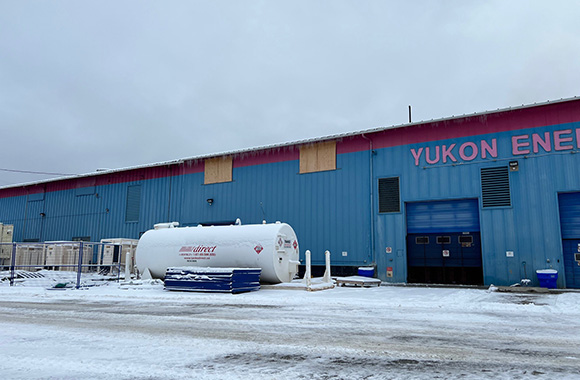- Electricity 101
- Projects and Facilities
- Dawson Diesel Replacement & Relocation Project
- Whitehorse Hydro Facility
- Aishihik Hydro Facility
- Mayo Generating Station Upgrades
- Mayo Hydro Facility
- Liquefied Natural Gas (LNG)
- Diesel Facilities
- Upratings and Refurbishments
- Solar
- Grid-Scale Battery Energy Storage System
- Atlin Hydro Expansion
- Repairs to the Boat Lock
- Whitehorse Thermal Permitting
- Dawson Voltage Conversion
- Faro Diesel Replacement Project
- Whitehorse Power Centres Project
- Whitehorse Diesel Replacement Project
- Energy Future
- Saving Energy
- Standing Offer Program
- Micro-Generation
Whitehorse Thermal Permitting
2025 update
 In December of 2024, we received a new air emissions permit from the Government of Yukon, which took effect January 1, 2025.
In December of 2024, we received a new air emissions permit from the Government of Yukon, which took effect January 1, 2025.
Why do we need an air emissions permit?
We need an air emissions permit to be able to run our diesel and LNG generators. With a growing population and the rapid electrification of home heating, Yukoners need far more electricity in winter than at any other time of the year. During peak demand on a winter day, renewable resources alone cannot meet our electricity needs. However, our diesel and LNG generators are available at the flip of a switch. Thermal resources like LNG and diesel help ensure that Yukoners have reliable electricity during winter peaks, emergencies, and whenever renewable resources aren’t available.
Our air emissions permit is issued by the Yukon government, following an assessment by the Yukon Environmental and Socio-economic Assessment Board (YESAB). Our new air emissions permit is valid until December 31, 2034.